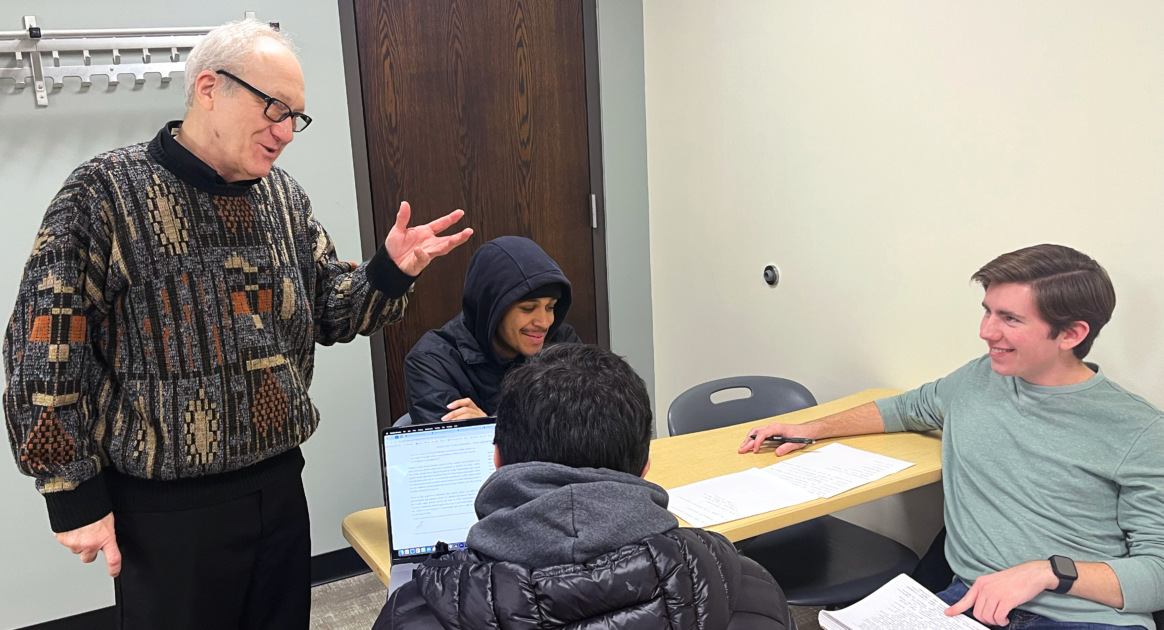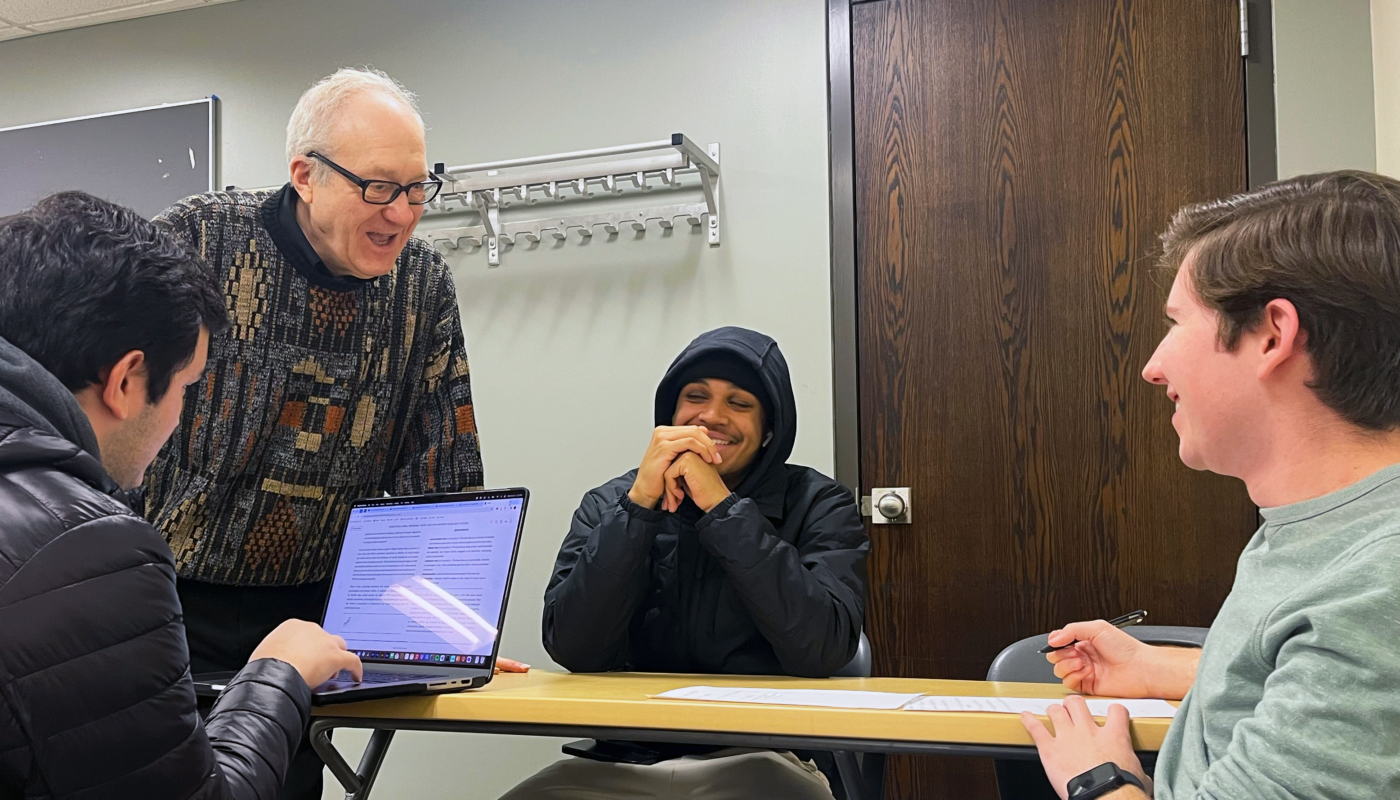Dr. E. Wray Bryant, assistant professor of religion and philosophy, has developed a captivating method of teaching influenced by years in religion, music and education which have shaped his life and outlook.

“It’s about the students,” Bryant said.
This statement is the best summary of Bryant’s teaching philosophy. Bryant loves to teach, a passion he has had since he was 5 years old and has done at the university and the Trinity Lutheran Seminary since 1996.
Bryant grew up in the church, which opened him to all the influences that have driven him. Bryant learned the organ to be involved in the music he loved in the community he loved. Bryant is now a church organist, and music is how he experiences the transcendence, a topic he discussed in depth with his students.
“Music somehow expresses the things that we just can’t put into words,” Bryant said. “Music is probably the only way to say that, to do that, to experience it (transcendence) and pass it on to others.”
In college, Bryant studied music education.
“My fundamental programming is as a music educator,” Bryant said. “If somebody comes to you for half [an] hour a week there’s no way they can learn to play the instrument through that. All you can do is give them ideas and inspiration, they have to go and do the practice.
“So, I try to provide encouragement, maybe some inspiration, some guidance, so that they can ‘go do the practice.’”
The way Bryant inspires his students to “go do the practice” is through heavily discussion-oriented classes. He leads his classes so the primary focus is deep thought and discussion, allowing students to be highly engaged in conversation and course material.
“He’s very passionate about what he talks about, which makes me passionate,” said Taylor Roberts, a second-year university student in his UC-170 Introduction to Ethics course. “He engages with every question.”
Engagement with students’ questions is part of Bryant’s “it’s about the student” philosophy. He enjoys speaking with students, learning about them and from them.
“For me, that’s what teaching is about, finding what inspires them, motivates them. I find students are interesting, they often teach me more than I could ever teach them,” Bryant said. “Students, students, students. It’s about being part of your life… For me the material is just an excuse to get together with students.”
In the same Ethics class, one student connected with Bryant’s love for being an educator when he was talking about his questions, to which Bryant loudly said, “That’s the point: Question everything!”
Bryant’s classes are based on in-depth philosophical analysis of text. He will never tell a student they are wrong in their analysis; he will always find some value in every answer so students will never feel put down or undervalued. He finds a way for every student to contribute to class in a thoughtful way, leaving no one behind.
Even Bryant’s deep analysis of text is inspired from his background in music education. Bryant said that his methodology for how he does analysis and finds meaning in text stems entirely from his form and analysis class in his undergraduate studies.
This analysis of music and text helped Bryant to finish his dissertation for his Ph.D. in Hebrew bible studies, “A Multidisciplinary Evaluation of Suzanne Haïk-Vantoura’s Musical Interpretation of Tiberian Masoretic Accents (te’amim).”
Bryant’s dissertation was a culmination of all his loves and fascinations.
“Fortunately, the topic I was able to fit for my dissertation allowed me [to] merge my studies in the Hebrew Bible with musicology, so I got to play with the best of both worlds,” Bryant said.
The balance of religion and music has been constant in Bryant’s life, which has helped him relate to his students and allowed Bryant a different manner of connecting with students.
This is especially true for any music students taking his Signature Learning courses. While many don’t discover that side of Bryant, those who do instantly have something to connect with him over and open far more in class.
While Bryant said, “I don’t carry my religious stuff on my sleeves,” his religious background has often also helped him understand and work with students who were raised in those sorts of environments. He will never “force it on folks,” but it has provided him the ability to be available and relatable for students who show interest in that side of him.
Bryant approaches his own faith and teaching very similarly. He wants to diverge from the definitive style of higher education to explore what life is and what transcendence truly means to the individual.
“Much of the academic world is about knowledge and certainty,” Bryant said. “Faith is not about certainty, and for me, life is much more mysterious. I’m much more comfortable saying ‘I don’t know, but let’s explore… There’s a wonderful verse, ‘Lord, I believe, help thou mine unbelief.’”


